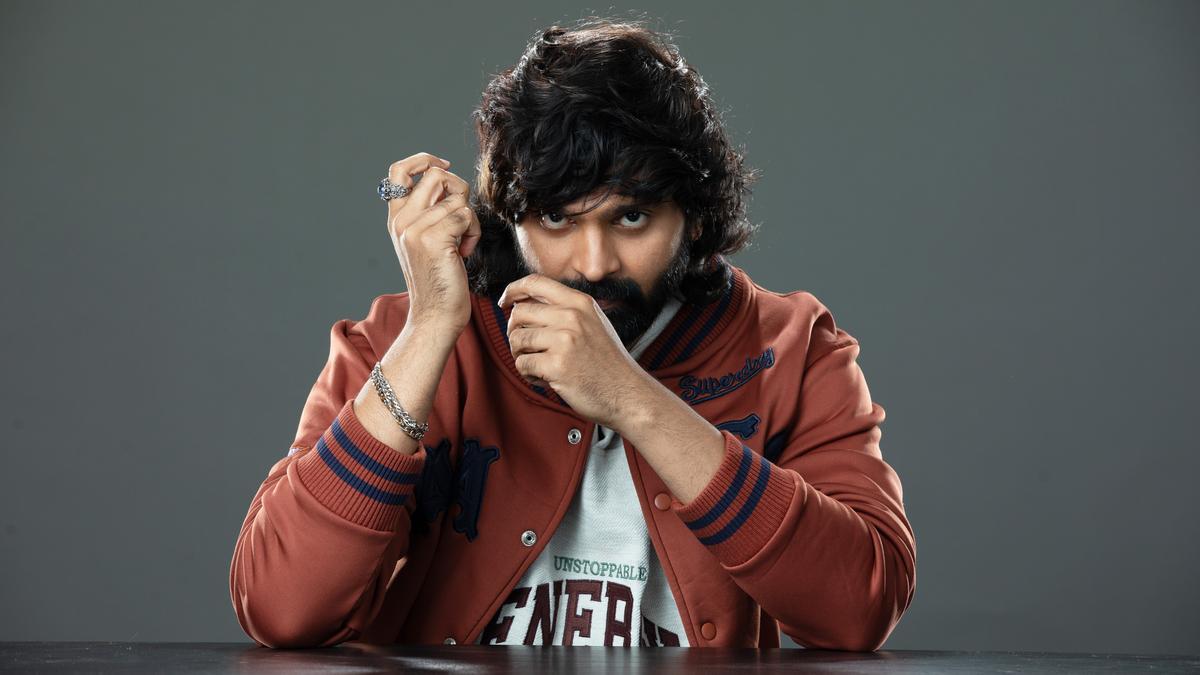
In a landscape often dominated by predictable genres and narratives, Hasith Goli’s Telugu film “Swag” stands as a bold and experimental statement. It traverses through time, sheds light on gender dynamics, and invites viewers to ponder deeply nuanced themes of masculinity and femininity. The film embarks on the journey with a man engulfed in a traditional view of masculinity, shocked and distressed by his son’s display of feminine traits. This initial premise sets the stage for a broader narrative, offering an emotional core to the film’s satirical depictions. His wife acts as a voice of reason and empathy, attempting to guide her husband towards the acceptance of their son’s natural gender expression.
Unfolding a rich tapestry of layered stories, Hasith presents this complex narrative through a non-linear storytelling approach that oscillates between the 1550s and the present day. In doing so, he weaves together the journey of a bloodline, linking the past and the present through characters and events that highlight gender equality beyond conventional binaries. The result is a film that, though sometimes demanding patience from its audience, ultimately rewards with its clever twists and profound messages.
“Swag” cleverly uses its title to reflect both the fictional Swaganika dynasty and the inherent swagger associated with patriarchal figures in society. In the film, this dynasty and its inherent culture confront a turning point. The historical narrative begins in 1551 within the fictional Vinjamara vamsam, a society governed by matriarchal norms under the reign of Queen Rukmini Devi, played by Ritu Varma. In a daring reversal of contemporary societal issues like female foeticide, male foeticide is normalised under her rule. Hasith Goli uses satire to illustrate a world where men are cloaked in veils, and women wield decisive power. Within this framework, Bhavabhuti, portrayed by Sree Vishnu, instigates a dramatic shift towards patriarchal systems, challenging existing gender roles.
Spanning a considerable duration of 159 minutes, “Swag” explores the cascading effects of these shifting gender dynamics. Anubhuti, a civil engineer and another character of Ritu Varma, bravely navigates a male-dominated society with a strong feminist perspective. Her character confronts sexual harassment head-on, only to face the grim realities of a society steeped in patriarchy, underscored by losing her job along with the perpetrator. This subplot starkly resonates with the contemporary world, mirroring challenges women face today.
.
The plot thickens around the central setting of the Vamsa Vriksha Nilayam, the family tree house, which holds a treasure from the Swaganika dynasty. As the family tree remains incomplete following Yayati (also played by Sree Vishnu), the guardians are on a quest for the rightful heir. In a quest embroiled with intrigue, several characters, including a police officer and a social media influencer, both portrayed by Sree Vishnu, claim their descent from the clan. The tale unfolds with numerous surprise revelations, enriching the narrative complexity.
The unfolding drama is not limited to competing heirs; the guardians, portrayed in dual roles by Goparaju Ramana, harbour their own secrets and intentions. Amidst this chaos, interactions of characters such as Meera Jasmine’s Revathi, Sharanya Pradeep, and Daksha Nagarkar, each enacting dual roles, add depth and multi-dimensionality to the story.
For some, the layered characters and intricate linking of historical and modern timelines might seem a bit overwhelming, yet a strategic twist midway through the film prompts the audience and characters alike to reassess their views on gender. The film does not shy away from exploring the ambiguous, grey areas within each character’s psychology, adding complexity to their portrayal.
Noteworthy performances abound, with Sree Vishnu at the helm, embodying a multitude of roles with a distinct flair for diction and body language. His rendition is pivotal, especially with standout pre-intermission scenes, where his performance sparks intrigue and curiosity. Matching his prowess, Ritu Varma shines as both Rukmini Devi and Anubhuti, with the latter role allowing her more depth to explore the character’s tenacity and evolving perception.
Supporting actors, particularly Meera Jasmine, help drive the film’s narrative forward. In her role as a teacher questioning the futile practice of learning without appreciating differences, she offers profound insight, elevating the film’s themes. Technical craftsmanship complements the storytelling, with Vedaraman Sankaran’s cinematography capturing the essence of each timeline, and Vivek Sagar’s diverse soundtrack enhancing mood transitions. The film’s editing by Viplav Nyshadam is critical, ensuring coherence across the film’s complex structure.
While perhaps not flawless, “Swag” emerges as a thought-provoking piece that juggles timelines and complex themes gracefully, leaving audiences reflective and entertained. Currently gracing theatres, this film invites viewers to engage with its narrative on a deeper level, fostering an understanding of gender equality that transcends simplistic binaries.










